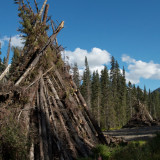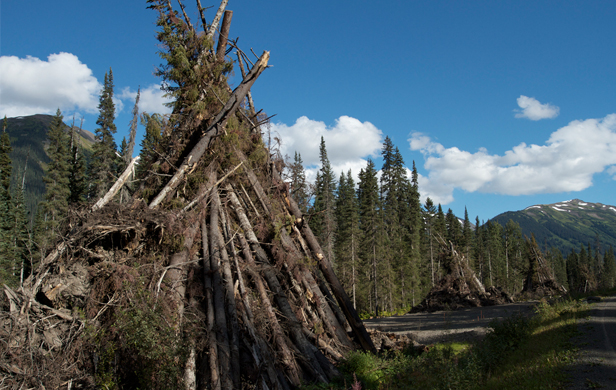Read this story from the Vancouver Sun’s Gordon Hamilton on a new report from the National Energy Board which reveals operators of an Abbotsford tank farm, connected to Kinder Morgan’s Trans Mountain Pipeline, ignored alarms suring a recent spill for hours. (Nov. 28, 2012)
A National Energy Board report reveals that Trans Mountain Pipeline operators ignored warning alarms for three-and-a-half hours before responding to a gasket failure that resulted in a crude oil spill last January at its Sumas tank farm near Abbotsford.
It took six hours after the first warning sounded for Trans Mountain’s Sumas operator to arrive on the scene, where a spill was discovered. The crude oil did not escape from a containment area but noxious fumes were released into the atmosphere, affecting nearby residents.
The NEB estimates 90,000 litres of crude oil escaped.
This latest oil spill report comes at a time when pipeline owner Kinder Morgan is applying to expand the pipeline’s capacity from 300,000 barrels a year to 750,000 barrels to feed Asian markets. It has given the company a black eye, said Ben West, of the Wilderness Committee.
The report is critical of monitoring staff at Trans Mountain’s control centre at Edmonton, stating that the control centre operator failed to set an alarm within the required time limit of 15 minutes after an oil transfer had taken place at the Sumas tank farm the evening of Jan. 23, and then failed to respond to leak warning alarms that sounded every hour until the operator’s shift ended.
The NEB report finds that the leak was detected later than it should have been, the control centre operator did not follow procedures and there were improper alarm settings in a recently-installed data acquisition system. The board states Trans Mountain Pipeline has identified corrective actions to address the report’s findings.
“The board finds that these actions are appropriate to prevent the occurrence of similar incidents in the future.”
The report, which was released earlier this month, states that the operator assumed the alarms were being caused by high winds and did not send a field technician to investigate.
Further, the operator failed to understand that the volume in the tank was dropping.




